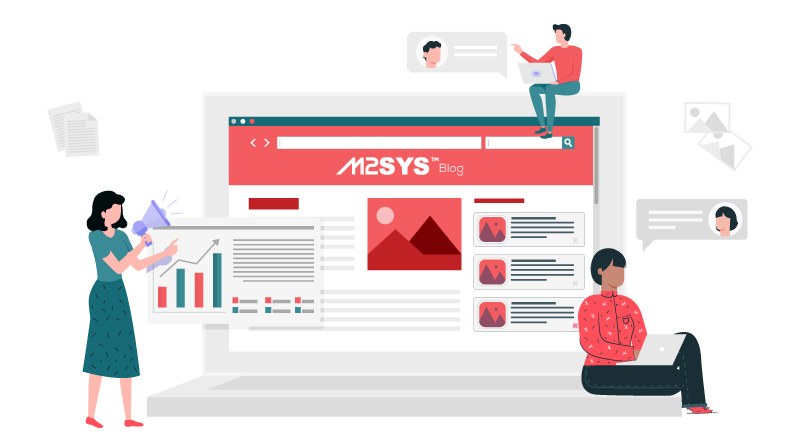Does your business need to be HIPAA compliant?

The Health Insurance Portability and Accountability Act (HIPAA) is one of the most important data protection laws in the US, but it looks like way too many companies still don’t know whether they need to be HIPAA compliant or not. This is mostly because they don’t understand it to the fullest extent.
Does my business need to be HIPAA compliant?
This is a frequently asked question, but a surprisingly large number of entrepreneurs and business owners don’t know the right answer. It’s a serious issue since you could face a substantial penalty for HIPAA violations. For example, Presence Health was fined $475 thousand for failing to comply with HIPAA due to untimely reporting.
If you want to keep your clients safe and sound and protect your company from possible data breaches, you need to learn all there is to know about HIPAA. Keep reading to see the fundamentals of HIPAA compliance.
HIPAA: Definition, Facts, and Stats
Before we answer the question from our headline, we need to make sure that you understand what HIPAA really represents.
By definition, HIPAA is a US law designed to provide privacy standards to protect patients’ medical records and other health information provided to health plans, doctors, hospitals, and other health care providers.
Jake Gardner, an assignment help expert at Write My Paper, explains that the purpose of the law is to strengthen privacy regulations on a federal level: “However, HIPAA does so without interfering with the existing state-level data protection mechanisms.”
The main reason why the US government decided to adopt HIPAA is the growing number of security breaches in the healthcare sector. Here are a couple of stats to help you understand the sheer magnitude of the problem:
- More than 500 healthcare data breaches with over 500 or more records took place in the US last year.
- 70% of healthcare-related companies have had a data breach incident in the past 12 months.
These and many other reports prove the importance of HIPAA regulations, but let’s dive deeper into the subject.
The core of the new data safety mechanism is PHI, i.e. protected health information. PHI under the US law is any information about health status, provision of health care, or payment for health care that is created or collected by a Covered Entity (or a Business Associate of a Covered Entity) and can be linked to a specific individual.
This essentially means that any information related to a patient’s medical condition or healthcare activity is considered private and protected by the corresponding law. In other words, HIPAA compliant businesses have to treat customers’ personal records with all due attention and cautiousness.
HIPAA Privacy and Security Rules
Although being a very complex legal regulation, it is important to understand that HIPAA is mostly focused on two aspects of customer data protection. Let’s check them out here:
- HIPAA Privacy Regulations
According to this rule, HIPAA compliant companies need to appoint a privacy officer and create a written customer privacy plan. It also determines the obligation of an employer to organize employee training in order to teach them about privacy regulations.
- HIPAA Security Regulations
A healthcare-related company has to undertake every action to identify possible data breaches and/or prevent data leakage incidents. It also needs to conduct a risk assessment in order to protect electronic records. Employees who fail to meet security requirements must be penalized, while the company will review internal procedures and processes periodically to pinpoint potential issues.
How Do You Know Whether Your Company Is HIPAA Compliant?
After everything we’ve stated so far, the most important question is how to know whether your business is HIPAA compliant or not.
The easiest way to put it is to say that every company that contributes to the healthcare industry in any form needs to be HIPAA compliant. Any type of legal entity that uses and administers PHI is HIPAA compliant.
Although it sounds simple, the truth is that many businesses don’t realize they are actively participating in healthcare services. How come?
Well, the law recognizes two types of HIPAA compliant organizations. First of all, there are the so-called Covered Entities that are directly involved in the healthcare industry. Secondly, there are also Business Associates that assist Covered Entities and provide them with supporting services of all sorts.
Covered Entities are pretty clear as they include hospitals, dentists, pharmacies, insurance companies, optometrists, and other healthcare providers that handle PHI. On the other side, Business Associates may encounter PHI through their cooperation with Covered Entities. As such, Business Associates can cover a lot of different types of entities such as:
- Software companies storing and processing patients’ healthcare records
- Medical equipment suppliers
- Data libraries and cloud services keeping electronic files and records
- Law firms and accounting companies

HIPAA Ready as the Best Compliance Platform
You’ve probably figured out by now that your company is HIPAA compliant, so the only thing left is to learn how to take care of all procedures and keep your customers’ records safe and sound.
Our recommendation is to use HIPAA READY as it is the best HIPAA compliance management platform currently available online. This compliance management application gives you all the tools and features you’ll ever need to strictly follow HIPAA regulations and avoid penalties.
The platform simplifies HIPAA compliance and turns it into a semi-automated procedure. You and your compliance team can take care of every activity through a user-friendly dashboard where all the features are stored. HIPAA Ready works in a step-by-step manner, thus making sure that you’ve got every aspect of the process completely covered:
- Create and update the latest HIPAA policy
- Organize the HIPAA-focused meeting
- Conduct a HIPAA compliance training
- Assign trainee
- Trainees obtain a HIPAA certificate
Of course, training management is not all there is to see in HIPAA READY since you can also count on a variety of additional functions such as policy customizations, digital checklists, update notifications, access management, and many more.
The Bottom Line
HIPAA is the single most important law that protects patients’ personal records, so you have to take it seriously and make sure to comply with all of its regulations. In this post, we discussed the basics of HIPAA and explained the cases in which your business needs to be compliant with the law. We hope this article helped you figure out the basics of HIPAA, but you can always write a comment if you need additional explanations – we will reply to you very soon!













Nice post.